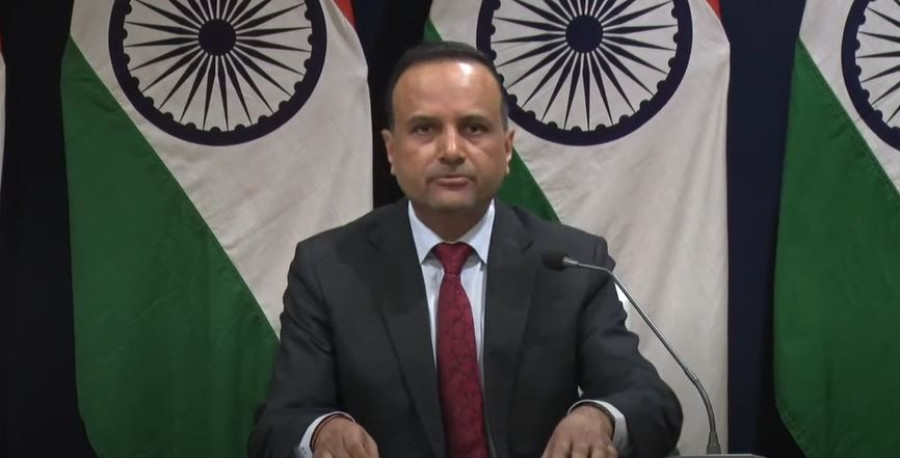National
On Supreme Court verdict restoring the House, India says ‘Nepal’s internal matter’
New Delhi, which was first to respond to Oil’s Parliament dissolution calling it Nepal’s matters for it to resolve, says it was confident Nepal would resolve such internal issues through its democratic system.
Suresh Raj Neupane
India on Thursday said that Nepal Supreme Court’s Tuesday decision to reinstate the House of Representatives is an entirely internal matter of Nepal and reiterated its position that Nepal would resolve its issue through its democratic system.
“We have seen the decision of the Supreme Court of Nepal on February 23. We have also been closely watching the political developments in Nepal for the past few months and have said before that this is an internal matter for Nepal,” said Anurag Srivastava, spokesperson for India’s Ministry of External Affairs. “India was confident that Nepal would resolve such internal issues through its democratic system as before.”
In a landmark verdict, the Supreme Court of Nepal on Tuesday overturned Prime Minister KP Sharma Oli’s decision to dissolve the House of Representatives and asked authorities to convene a House meeting within 13 days–by March 8.
India is the first country to respond to ongoing political developments in Nepal.
After Oli’s House dissolution move on December 20 also, New Delhi was first to respond.
On December 24, India said that Oli’s decision to dissolve the House and declare snap polls for April 30 and May 10 was an internal matter of Nepal.
“We have noted the recent political developments in Nepal. These are internal matters for Nepal to decide as per its democratic process,” Srivastava had said. “As a neighbour and a well-wisher, India will continue to support Nepal and its people in moving forward on the path of peace, prosperity and development.”
The Supreme Court decision to overturn Oli’s House dissolution move calling it unconstitutional has been widely appreciated in Nepal, as many say the judgment helped bring the country’s politics within the constitutional framework.
In Nepal, the general public and analysts are closely following what politics course the country would take, as political actors will try to forge their own equations to form a new government because Oli is under pressure to resign on moral grounds after the reinstatement of the House.
Indian analysts and former diplomats have hailed Nepal Supreme Court decision to reinstate the House as a positive step.
SD Muni, an expert on Nepal affairs, calls the court decision “bold”.
“The court decision means victory for democracy,” said Muni in a brief interview with the Post. “There were concerns if a decision would come a few days later. But definitely it’s a bold decision.”
According to Muni, how the Nepali Congress moves forward will determine the future course of Nepali politics.
The Congress has been approached by both factions of the Nepal Communist Party, but it has so far stopped short of opening its cards.
With the Nepal Communist Party politically divided with Pushpa Kamal Dahal-Madhav Kumar Nepal faction controlling 90 seats in Parliament and the Oli faction 83 seats, the Nepali Congress has emerged as the kingmaker.
The Congress support is going to be crucial in the formation of the new government when the House reconvenes.
Brahma Chellaney, an author and geostrategist, has said the Supreme Court verdict showed democracy was still alive in Nepal.
“When Nepal became the world's sixth communist-ruled country in 2018, it raised the question: Can democracy and communism coexist?” Chellany worte on Twitter on Tuesday night. “Today's bold Supreme Court order reversing the beleaguered PM's action in dissolving Parliament shows that democracy so far is still alive in Nepal.”



 16.98°C Kathmandu
16.98°C Kathmandu














